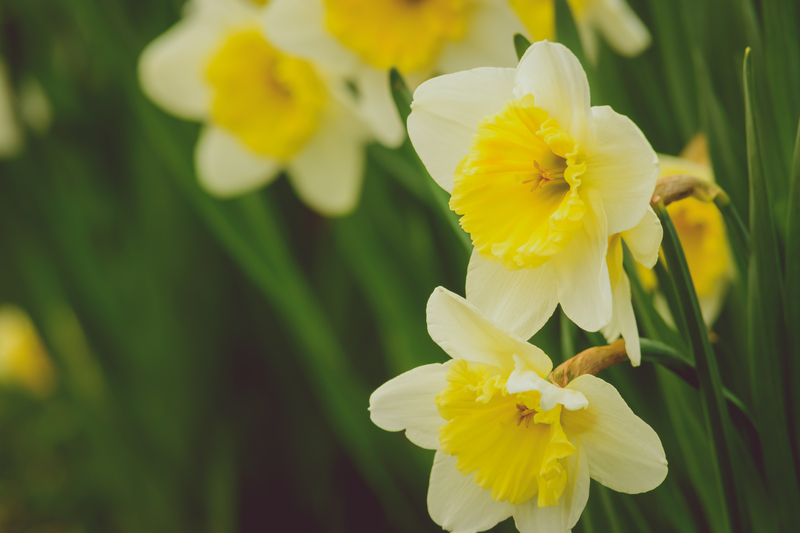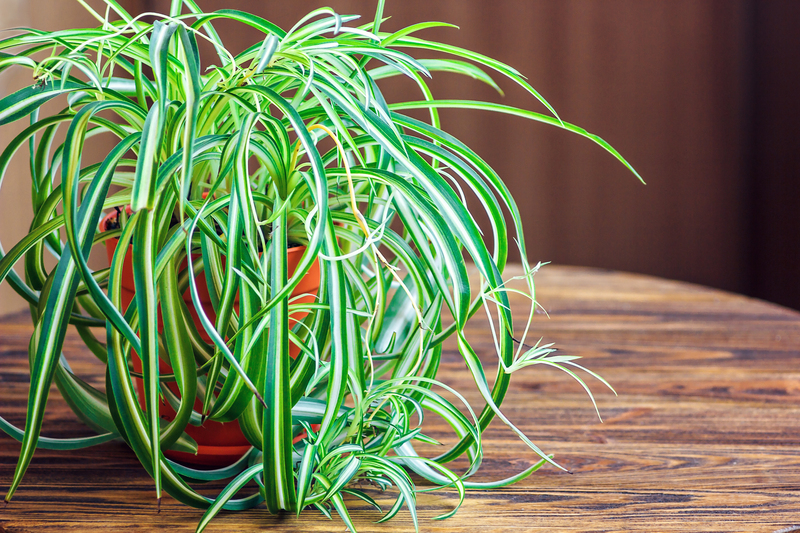Three Insider Tips for Superior Weed Management
Posted on 06/06/2025
Three Insider Tips for Superior Weed Management
Weeds are the persistent foes of every gardener, farmer, or landscaping enthusiast. Superior weed management is not just about aesthetics--it's foundational for healthy, resilient, and productive plants. If you're tired of waging an endless war against invaders, it's time to level up your approach. In this comprehensive guide, you'll discover three insider tips for superior weed management that will help you take back control and create thriving green spaces.
Explore proven, expert-backed strategies that combine prevention, control, and continuous improvement to keep your lawns, gardens, and fields nearly weed-free--all year long.
Understanding the Importance of Effective Weed Management
Mastering weed management goes far beyond pulling out a few dandelions. Weeds compete with desired plants for resources such as nutrients, water, sunlight, and space. Their presence can harbor pests and diseases, disrupt crop growth, and cause significant economic losses in both small and large-scale agriculture.
- Prevention is more effective than treatment: Stopping weeds before they take root saves time, money, and effort.
- Improved yields and aesthetics: Healthy, weed-free areas support lush lawns, productive gardens, and attractive landscapes.
- Environmental stewardship: Minimize chemical usage and soil disruption to protect local ecosystems and beneficial insects.
Now, let's dive deep into the three advanced weed control strategies that set successful growers apart from the rest.

Tip #1: Establish a Dense and Diverse Plant Canopy
Why Dense Growth Is Your Best Defense
One of the most overlooked--and most effective--weed prevention techniques is to ensure your chosen plants leave little room for competition. Dense planting, clever ground cover, and strategic crop rotation make it difficult for weeds to gain a foothold.
- Shade Suppresses Germination: Most weed seeds require light to sprout. A thick canopy blocks sunlight, reducing new weed emergence.
- Diversification Outcompetes Weeds: Different plants tap into various nutrient and moisture layers, leaving fewer resources for weed growth.
- Cultural Control: Rotate crops and use cover crops, such as clover or winter rye, in off-seasons to disrupt weed cycles and replenish soil health.
Practical Steps for Creating a Weed-Resistant Canopy
- Start with healthy transplants: Robust seedlings outpace weeds in the race for sunlight and nutrients.
- Sow crops at the correct spacing: Plant close enough to allow rapid canopy closure but not so tight as to cause poor air circulation.
- Use ground covers and living mulches: These act as natural barriers, blanketing the soil and making germination difficult for undesired seeds.
By fostering a vigorous plant community, you create a dynamic environment where weeds struggle to survive.
Tip #2: Leverage Mulching and Barrier Techniques
The Power of Mulch for Weed Suppression
Mulching is a trusted staple in both organic and conventional weed management solutions. Whether you're growing vegetables, maintaining flower beds, or managing orchards, applying a mulch layer offers multiple benefits:
- Prevents light penetration: Blocks sunlight to weed seeds, inhibiting germination and growth.
- Moderates soil temperature and moisture: Creates an unfavorable environment for many common weeds.
- Improves soil health: Organic mulches break down over time, enriching the soil and supporting beneficial microorganisms.
Types of Mulches and Their Best Uses
Mulches fall into two main categories: organic and synthetic. Both can play a vital role in integrated weed control plans.
- Organic mulches: Straw, wood chips, bark, compost, and shredded leaves provide natural weed suppression, conserve soil moisture, and slowly release nutrients. Renew layers annually for maximum effectiveness.
- Inorganic mulches: Landscape fabric, plastic sheeting, or gravel create physical barriers. They last longer but do not improve soil fertility.
Insider Tip: For superior results, lay wet newspaper or cardboard beneath your primary mulch to double the barrier effect--this technique smothers even stubborn perennial weeds!
Barrier Methods for Hardcore Weed Control
- Install edging: Physical barriers at garden beds or between lawns and paths prevent invasive weeds like Bermuda grass from creeping in.
- Solarization: In trouble zones, cover soil with clear plastic and let the sun's heat sterilize weed seeds below--an eco-friendly weed management practice during hot months.
- Choose localized control: Use spot treatments like flame weeders or boiling water for weeds growing in hardscapes or patio cracks, instead of broadcasting chemicals.
Combining mulches and barriers is a time-tested method to limit the spread and recurrence of weeds, leaving your plants room to flourish.
Tip #3: Early Intervention and Smart Monitoring
Why Timely Action Matters in Weed Management
Even with the best preventative measures, some weeds will appear. Spotting and addressing these intruders promptly is critical for superior weed control. The longer weeds grow, the deeper their roots and the more seeds they produce, leading to exponential infestations next season.
- Prevent seed production: Most weed species are prolific seeders--removing them before flowering drastically reduces their spread.
- Disrupt root reserves: Persistent perennial weeds, like bindweed or Canada thistle, need repeated management to exhaust their underground energy stores.
- Reduce labor in the future: Regular monitoring means smaller, more manageable weed populations, saving time and resources year after year.
Implementing a Proactive Weed Control Routine
- Walk your property weekly: Especially in the growing season, a quick stroll lets you catch new weeds before they become problems.
- Understand weed growth stages: Young weeds are easier to pull or hoe; remove before they develop deep roots or seeds.
- Utilize targeted tools: Invest in high-quality hoes, hand weeders, or flame wands for efficient, ergonomic removal. For larger areas, mechanical cultivation can supplement hand work.
- Maintain detailed records: Track where problem species emerge and adjust your prevention tactics accordingly.
Technology and Science-Driven Weed Management
Modern agriculture and smart gardening increasingly use digital tools and data to stay ahead of weeds:
- Weed identification apps: Recognize unknown species quickly to choose the right organic or chemical control.
- Drone surveys and mapping: Larger properties can spot outbreaks faster than manual scouting.
- Precision applications: GPS-guided sprayers or drip lines ensure that only target areas are treated, minimizing environmental impact and reducing herbicide resistance.
Bonus Expert Advice: Integrated Weed Management Plans
Relying on a single method rarely delivers the best results. For truly superior weed management, adopt an Integrated Weed Management (IWM) approach. This combines cultural, mechanical, biological, and chemical tools for a sustainable, long-term solution.
Components of an Effective IWM Plan
- Cultural practices: Crop rotation, dense planting, cover crops as detailed above.
- Mechanical control: Hand weeding, tilling, mowing.
- Biological control: Introduce natural enemies--such as insects or grazing animals--where appropriate.
- Judicious chemical use: When necessary, select targeted herbicides and rotate active ingredients to prevent resistance.
Tip: Prevention and diversity in weed control methods reduce the need for chemicals, lower your workload, and encourage a healthy soil ecosystem.
Common Mistakes in Weed Control to Avoid
Even with the right strategies, certain oversights can undermine your efforts. Here's what to watch out for:
- Neglecting regular monitoring: Don't wait until weeds are a visible problem--be proactive!
- Relying solely on herbicides: Overuse leads to resistance and damages beneficial soil life.
- Improper mulch application: Skimping on mulch depth or using weed-contaminated organic material can actually increase weed issues.
- Letting weeds go to seed: One season of neglected weed growth can result in years of problems.

FAQs: Superior Strategies for Weed Management
What is the most effective non-chemical method for weed control?
Dense planting combined with organic mulching is widely regarded as the most effective chemical-free approach. This duo deprives weeds of light and resources while supporting plant health and soil fertility.
How often should I monitor my garden or farm for weeds?
Weekly checks during the main growing season are recommended. Early detection is key for preventing larger outbreaks and keeping weed management labor to a minimum.
Can mulching completely eliminate weeds?
While mulching is a powerful barrier, some persistent weeds may still sprout, especially around edges or if the mulch layer is too thin. Combining mulch with dense planting and regular monitoring provides nearly comprehensive control.
What mistakes should I avoid when using herbicides?
- Never spray during windy or rainy weather--this leads to drift and environmental contamination.
- Always read and follow the label for dosage and application timing.
- Rotate herbicides to reduce the risk of resistant weed populations.
Conclusion: Achieve Superior Weed Management with Insider Tips
Mastering superior weed management is more than a set of chores--it's a thoughtful, ongoing process. By combining dense planting, strategic mulching, proactive monitoring, and integrated management plans, you'll not only minimize weed intrusion but also cultivate a healthier, more vibrant growing environment. Weed control doesn't have to be endless drudgery--with expert tips and consistency, your gardens and fields will remain resilient and productive year after year.
Ready to transform your garden or farm? Put these three insider tips to work and enjoy the long-lasting benefits of a weed-free landscape!
Related Readings and Resources:
- Best Strategies for Weed Management
- Pro Tips for Effective Weed Control
- Organic Weed Prevention Techniques
- Managing Invasive Weeds in Your Garden
For more help or personalized advice, consult with local horticulture professionals or extension services in your area. Successful weed management is always evolving with new research and your local ecosystem!
Latest Posts
Aesthetic Hedge Shaping: Techniques and Creative Ideas
The Art of Weatherproofing Your Garden Sanctuary
Soil Restoration with Transformed Organic Waste

